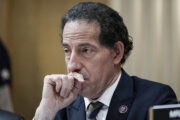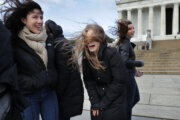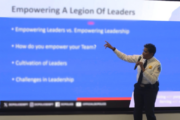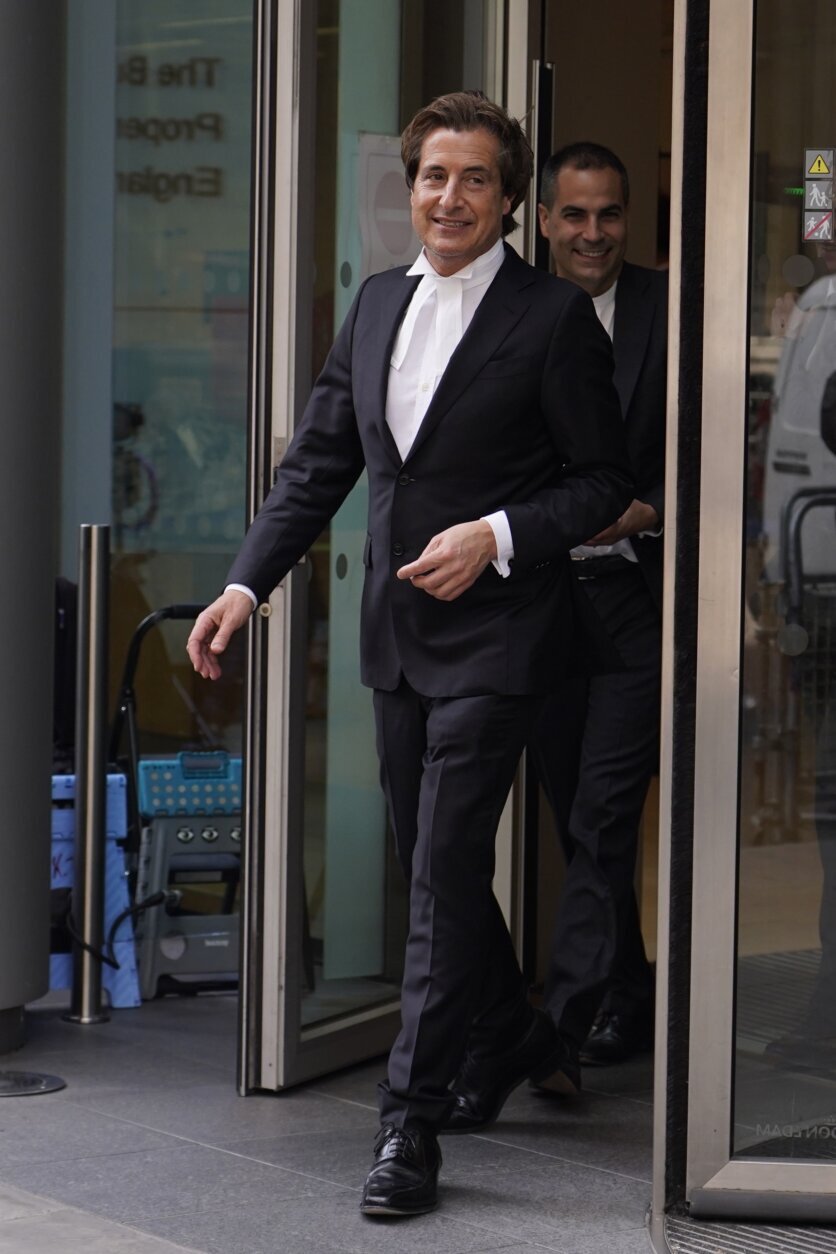
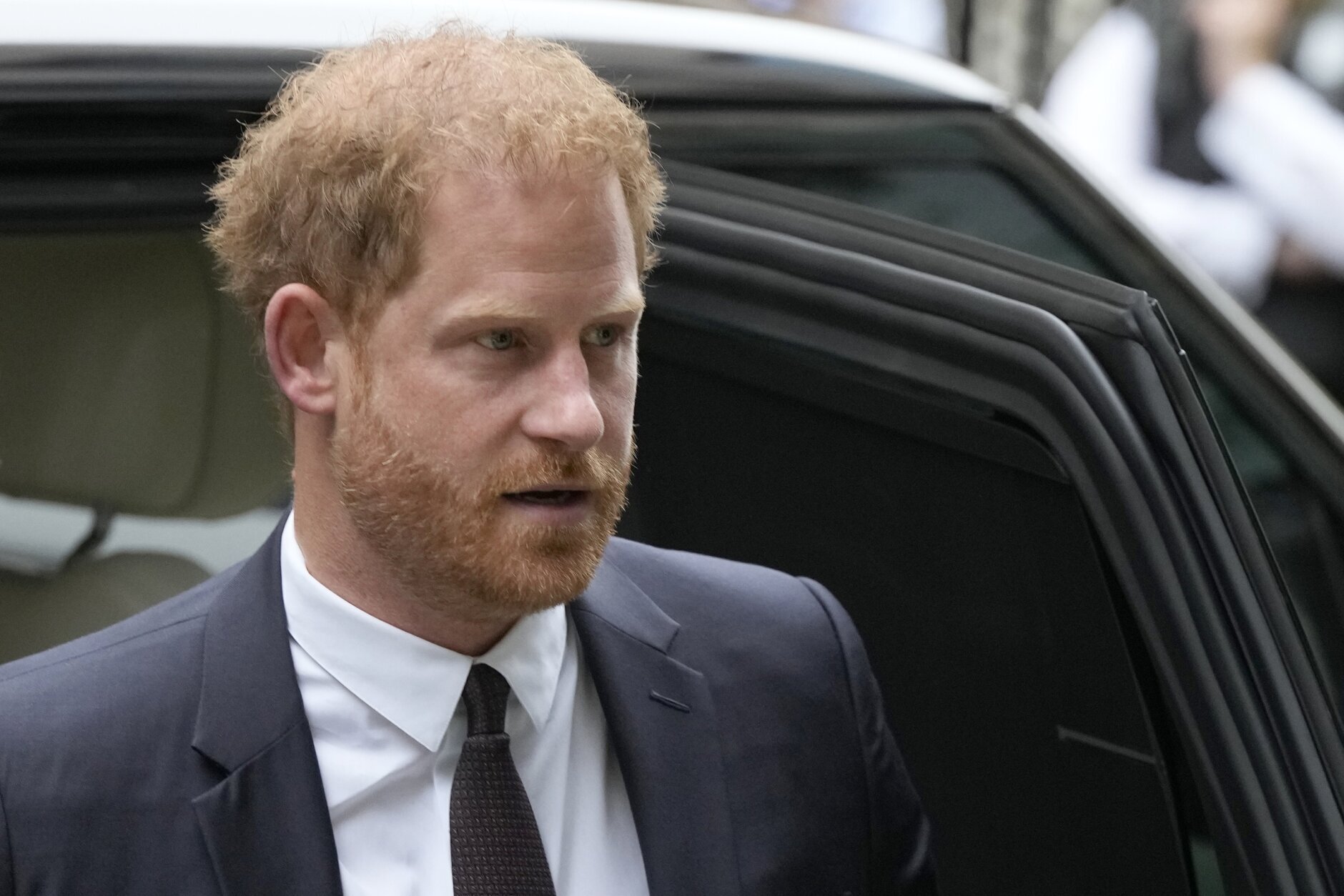

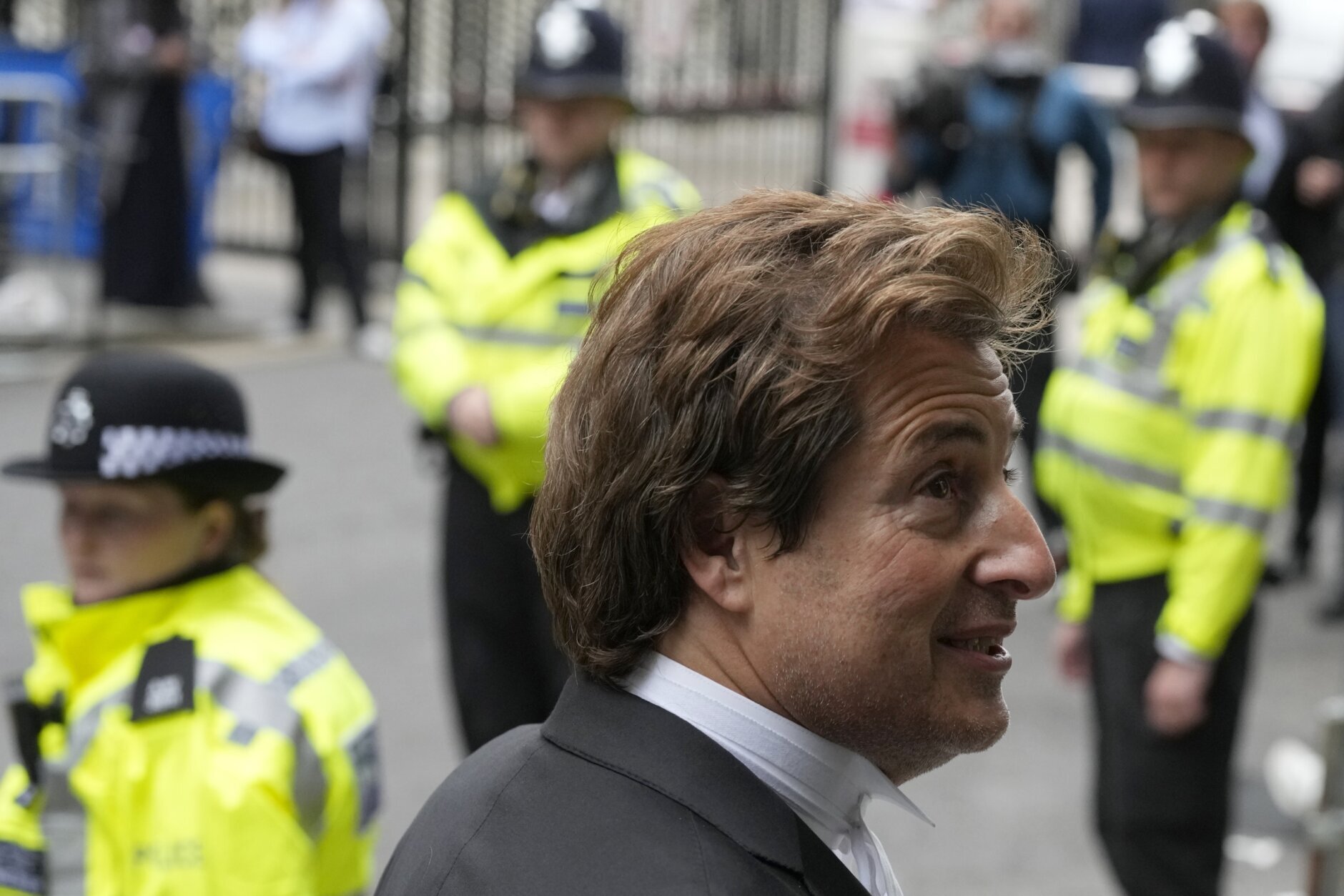
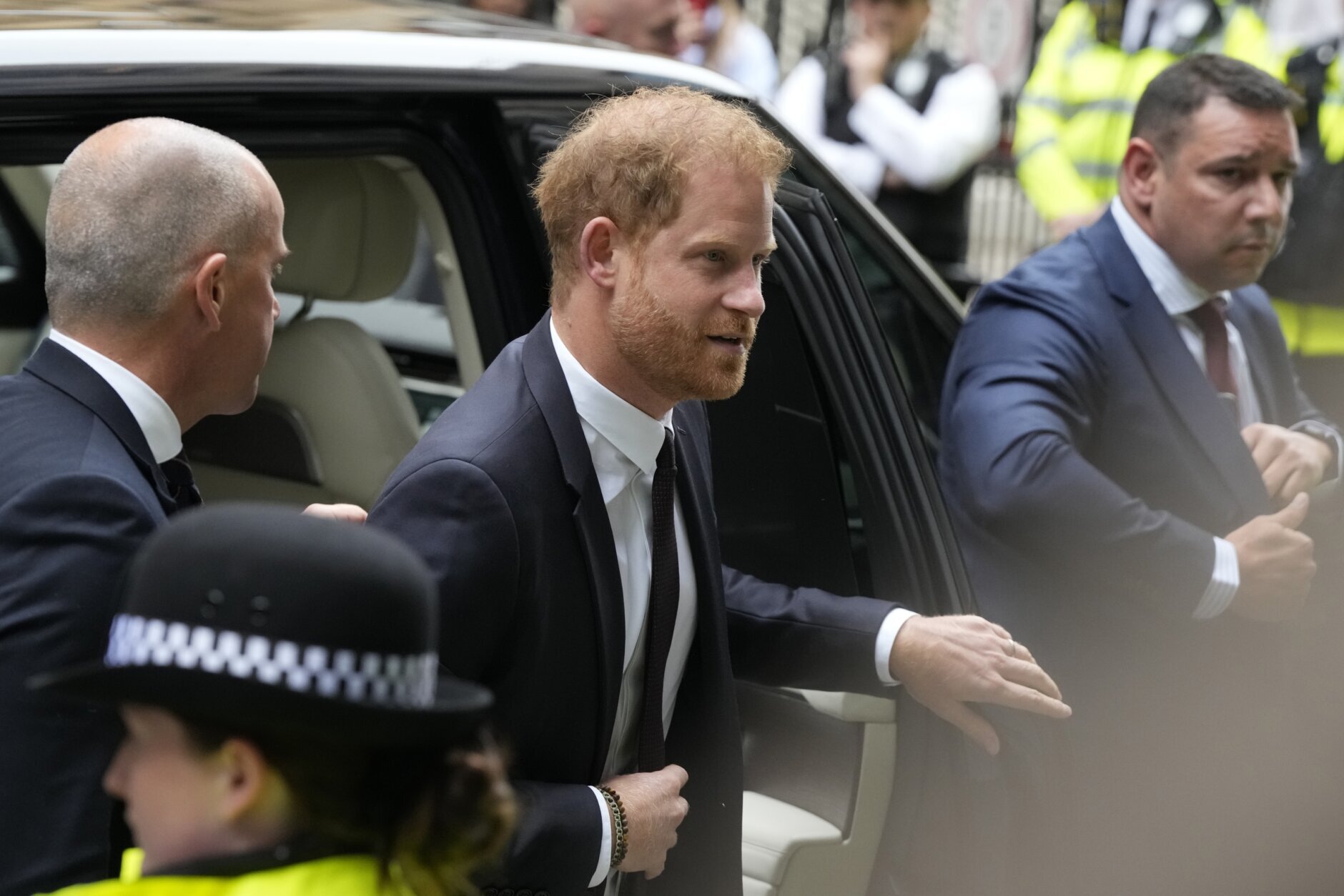


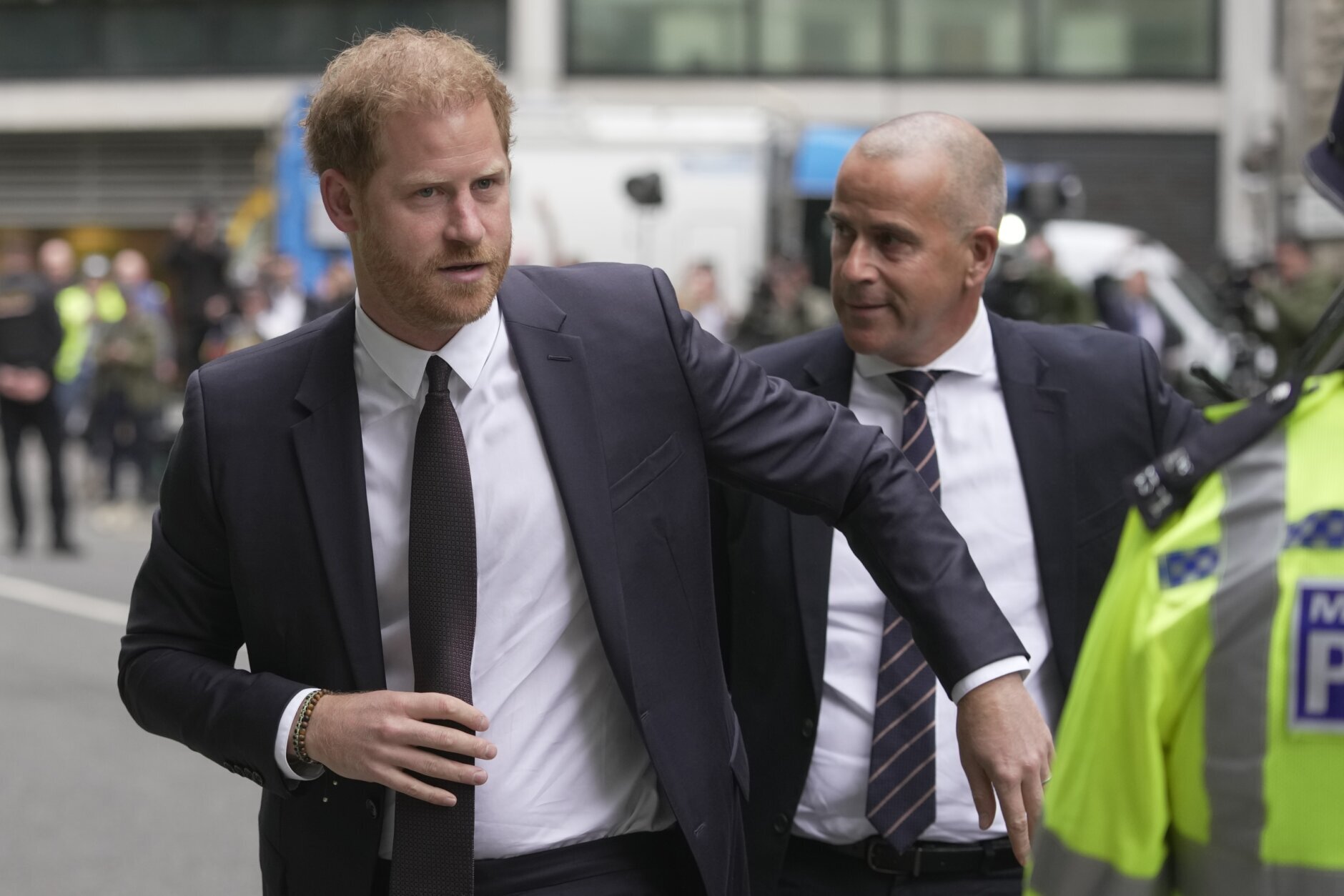

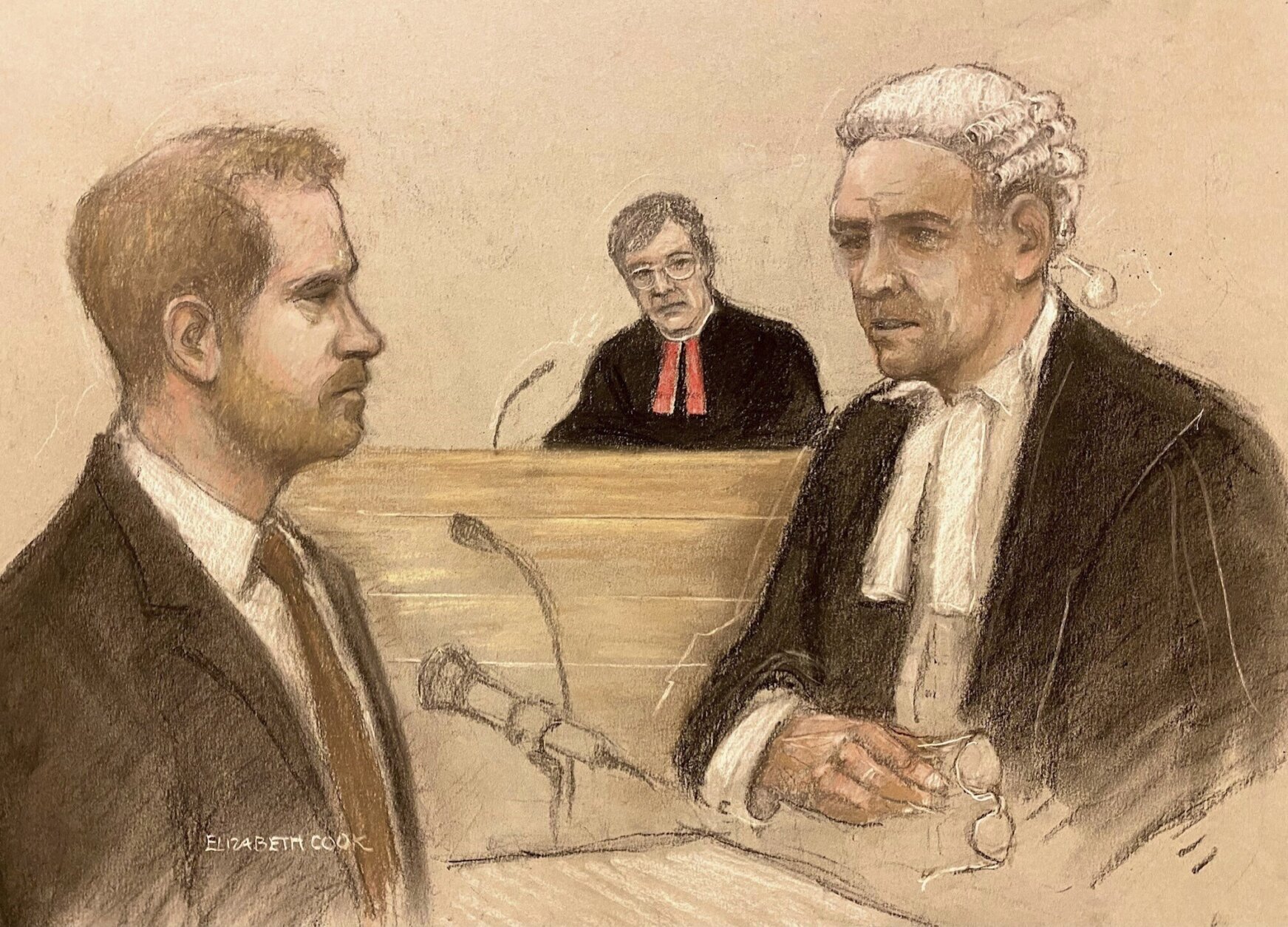
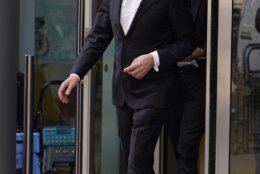


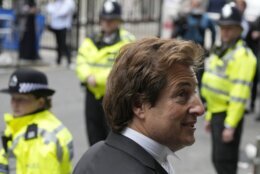





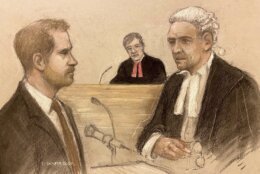
LONDON (AP) — Prince Harry’s historic showdown Tuesday with the publisher of a British tabloid exposed his deep suspicions of the press but offered little concrete evidence to support accusations of phone hacking that he said caused so much anguish in his life.
The Duke of Sussex became the first senior member of the royal family to testify in more than a century as he held a Bible in his right hand and, in a soft voice, swore to tell the “whole truth and nothing but the truth” in the High Court in London.
Harry accuses the publisher of the Daily Mirror of using unlawful techniques on an “industrial scale” to score front-page scoops on his life.
Dressed in a dark suit and tie as he sat in the witness box, Harry told Mirror Group Newspapers attorney Andrew Green that he had “experienced hostility from the press since I was born.” The prince accused the tabloids of playing “a destructive role in my growing-up.”
Green apologized for the one instance Mirror Group has admitted to hiring a private investigator to dig up dirt on Harry, which was not among the claims he has brought. Mirror Group denies or doesn’t admit his other allegations.
Green acknowledged that the duke had “lived a life of tabloid life intrusion,” and then in a sympathetic tone set about dismantling his case.
Taken back in time to his 12th birthday and onward through early adulthood, he was confronted with articles that he has complained about and asked to identify the source of wrongdoing by Mirror Groups’s journalists.
Harry was forced almost immediately to acknowledge that he wasn’t certain he read the 33 specific articles about him when they were published.
“Is it realistic, when you have been the subject of so much press intrusion by so many press, both domestic and international, to attribute specific distress to a particular article from 20 years ago, which you may not have seen at the time?” Green asked.
“It isn’t a specific article; it is all of the articles,” Harry said. “Every single article has caused me distress.”
He suggested the articles were the result of phone hacking or some other unlawful information gathering method that “desperate journalists” relied on for any news nugget about his life.
The 38-year-old son of King Charles III is the first senior British royal since the 19th century to face questioning in a court. An ancestor, the future King Edward VII, appeared as a witness in a trial over a gambling scandal in 1891.
Harry has said the royal family avoided legal entanglements to prevent having to be put in the witness box.
The case dates from 1996 to 2011 — a period when phone hacking by tabloid journalists was later discovered to have been widespread. It led to revelations of more intrusive means such as phone tapping, home bugging and using deception to obtain flight information and medical records.
Harry’s fury at the U.K. press runs through his memoir, “Spare.” He blames paparazzi for causing the car crash that killed his mother, and said intrusion by the U.K. press, including allegedly racist articles, led him and his wife, Meghan, to flee to the U.S. in 2020 and leave royal life behind.
When pressed to be specific about what information had been illegally harvested, Harry repeatedly told the lawyer that the source of information in stories was “highly suspicious” or that he should ask the reporter who wrote the article.
He said some of the journalists had been known for hacking or that there were invoices to third parties, including private investigators known for snooping, around the time of the articles. He suggested other records had been destroyed.
Time and again, as Green laid out evidence to the contrary and what was described by Harry as a nefarious act had a more innocent explanation.
The source of a 1996 story that mentioned how badly he was taking his parents’ divorce appeared to have come from public comments his mother, the late Princess Diana, had given to reporters.
Information about his 18th birthday came from his own mouth and, apparently, palace press people who set up an interview with him and the Press Association, which was widely used or quoted in many papers, including the Daily Mirror.
A Daily Mirror story headlined “Snap, Harry breaks thumb like William” in 2000 came from a spokesperson at his father’s office, which had given the Press Association the news the day before.
Harry remained steadfast that the paper’s former royal editor, Jane Kerr, who is due to testify Wednesday, relied on some unlawful means to report the story.
“Probably herself or she got someone else to do her dirty work for her,” he said.
When asked whose phone she hacked, Harry suggested it could have been the doctor’s.
“Are you not in the realms of total speculation?” Green said.
“No, I do not believe so,” Harry said.
Harry said the articles caused him to become depressed and paranoid, distrustful of friends, who he feared were feeding information to the media. His circle of friends shrank, relationships fell apart and he felt constantly in the glare of the journalists who were shaping the narrative of his life.
“I genuinely feel that in every relationship that I’ve ever had — be that with friends, girlfriends, with family or with the army, there’s always been a third party involved, namely the tabloid press,” Harry said in a written witness statement released Tuesday.
Setting out the prince’s case, his lawyer, David Sherborne, said Monday that from Harry’s childhood, British newspapers used skullduggery to cover all facets of his life — from school injuries to experimenting with marijuana and cocaine, to ups and downs with girlfriends.
“Nothing was sacrosanct or out of bounds” for the tabloids, the lawyer said.
Green said Monday that there was “simply no evidence capable of supporting the finding that the Duke of Sussex was hacked, let alone on a habitual basis.”
Mirror Group has paid more than 100 million pounds ($125 million) to settle hundreds of unlawful information-gathering claims and printed an apology to phone hacking victims in 2015.
Copyright © 2024 The Associated Press. All rights reserved. This material may not be published, broadcast, written or redistributed.




